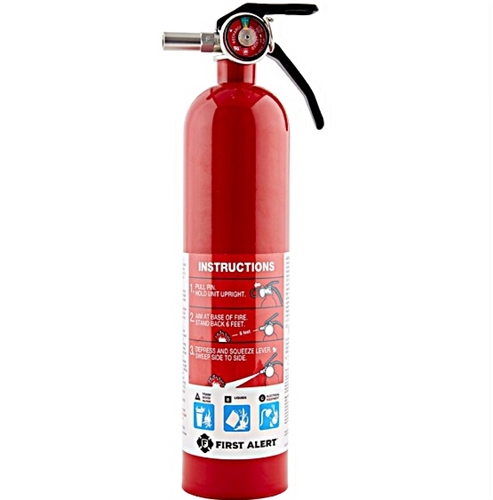 You may not want to think about it, but RV fire safety is just as important as home fire safety. Fires can spread in an RV quickly due to how they are built and the materials used. Believe it or not, thousands of RV fires happen across the country each year. They can stem from several different causes. Proper care and maintenance can prevent a lot of issues that may start a fire, but it’s important to have a plan in place to know what to do in case a fire does break out in your RV.
You may not want to think about it, but RV fire safety is just as important as home fire safety. Fires can spread in an RV quickly due to how they are built and the materials used. Believe it or not, thousands of RV fires happen across the country each year. They can stem from several different causes. Proper care and maintenance can prevent a lot of issues that may start a fire, but it’s important to have a plan in place to know what to do in case a fire does break out in your RV.
Electrical fires caused by shorts or improper wiring are among the most common causes for an RV fire. Engine fires caused by grease build-up or leaking fluids can also be a hazard. Propane gas leaks are definitely something to watch out for. Not paying attention in the kitchen while cooking can also lead to mishaps that can start a fire. Sometimes the cause may not even be something you would immediately think of. For example, the undercarriage of your RV gets hot while driving. Once you've parked, a fire could start if there isn't enough air passing through underneath to cool it off, or if it's been parked over tall, dry grass. Too much friction due to dried out wheel bearings, braking system issues, or improperly inflated tires can cause things to overheat and catch fire as well. Luckily most of these causes are preventable with a little vigilance.
Make sure you check the LP gas system regularly, including the tanks & connections, for any signs of damage or leaks.
LP Gas and carbon monoxide detectors are a good idea so they can alert you to any problems. Make sure your engine is clean and nothing is leaking out. Electrical wiring and connections should be checked to make sure they are still in good condition. Be aware of the demand on your outlets. Just like at home, you should also have an escape plan, so you are prepared if a fire does break out. Make sure you have more than one evacuation route, in case one is blocked. It's also a good idea to practice these escape routes.
When it comes to
RV fire extinguishers, you should have more than one. At least one near the kitchen and one in outside storage. If your RV is big enough, a third in the bedroom would also be a good idea. Fire extinguishers should be B/C type. B & C refer to the class of fire the extinguisher can put out. Class B is defined by flammable liquids or gases such as oil, grease, or alcohol. Class C includes electrical fires. Keep in mind the power needs to be shut off before handling an electrical fire. All adults and older children should know how to use them. Keep in mind that there are different types of smoke detection, such as ionization detection and photoelectric detection. It's most beneficial to have a smoke detector that does both. Just like with a fire extinguisher, there should be more than one if your RV is big enough to have a separate sleeping area. All detectors should be at least 4 feet above the floor and 8 inches from the ceiling. Make sure you use a smoke detector designed for RV use, as they are tested for more standards than ones used in the home.
Don't let your next camping trip get ruined by a disaster that could have been avoided. Being prepared will go a long way toward preventing RV fires and some extra knowledge can assist you in keeping everyone safe if one does happen.
RV Fire Safety Tips